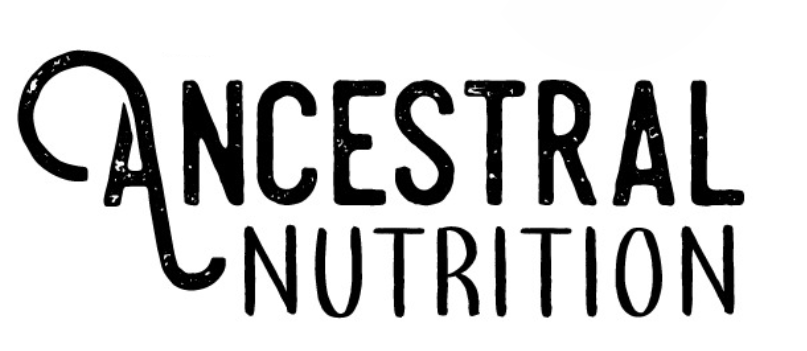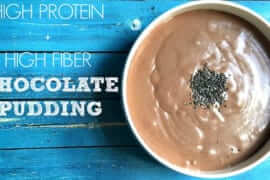People ask me this (in one form or another) all the time.
What’s your food philosophy?
What did our ancestors eat?
What IS ancestral eating?
How do we eat like our ancestors? They were hunter-gatherers.
FIRST, LET’S CLEAR UP WHAT ANCESTRAL EATING IS NOT.
The motivation behind eating ancestrally isn’t to mimic exactly what our ancestors ate. It’s to eat what they would’ve had reasonable access to. It’s about avoiding modern, processed, industrialized food. Eating ancestrally is more about what you don’t eat than what you do; let me explain.
Ancestral eating is not a strict set of rules that need to be adhered to.
It is not one size “diet” fits all. It is not necessarily black and white – eat this and avoid that. Ancestral eating varies.
Some followers of an ancestral diet eat corn, rice and/or dairy – foods that were not widely available prior to ten thousand years ago. Does that mean these foods are unhealthy and need to be avoided at all costs? Does that mean they aren’t truly eating an ancestral diet? Absolutely not. Some people do well eating these foods, others do not. The more important part of eating these foods is to eat them how they were eaten traditionally: organic, non-GMO and sprouted corn and rice and grass-fed, full-fat and preferably raw dairy.
Traditionally, Asian cultures have a difficult time digesting dairy. Whereas people from cultures like the Nuer of the upper Nile or the Todas from Southern India (two cultures studied by Dr. Weston A. Price), where milk is a traditional staple, have a much easier time digesting dairy.
Some people do well eating various food groups that aren’t necessarily considered ancestral but are still traditional foods from nature – not from a lab. And this is completely fine. What works for one person may not work for another. Hell, some people can’t eat tomatoes. Does this make tomatoes inherently unhealthy? No. We all have biological differences that necessitate variations in our diets, and that is fine. That’s better than fine, that’s good!
Ancestral eating is eliminating modern-day foods like:
- vegetable oils (soy, corn, canola, cottonseed)
- refined sugar
- processed soy and fake meats
- refined, packaged products
WHAT ANCESTRAL EATING IS.
Ancestral eating is simply eating unrefined, unprocessed, whole foods that have been around for thousands and thousands of years. This includes:
- grass-fed, wild animals
- wild seafood
- pastured chicken and eggs
- organic fruits and vegetables
- healthy, traditional fats like olive oil, avocado oil, coconut oil, lard, butter, etc.
- grass-fed, full-fat raw dairy
- fermented foods
Ancestral eating is centered around eating real food. What do I mean by real food? Food as close to its natural state as possible. Ancestral food doesn’t have ingredients – it is the ingredients!
Ancestral eating is eating locally.
It’s eating food from your local farmers and farmers markets. This isn’t only great for the environment, it supports your local economy. Every time you buy food, you vote. You can vote for farmers or you can vote for giant corporations. Ancestral eating is knowing where your food comes from. It’s not anonymous. It’s knowing who grew it and how it was grown.
Ancestral eating is eating sustainably.
Cows are meant to be grass-fed. Chickens are meant to be pastured. Vegetables are not meant to be grown with dangerous chemicals.
Ancestral eating is seasonal.
I’m the first to admit this is something I struggle with. Tomatoes in winter? Sometimes I buy ’em. Just do the best you can. Shopping at your local farmers market makes seasonal eating much easier and more accessible. You’ll buy tomatoes in the summer, broccoli in the fall, squash in the winter, asparagus in the spring. This puts you in tune with nature’s rhythm. It also ensures your food is healthier because it hasn’t traveled three thousand miles to reach you.
Ancestral eating is eating the best you can, in a modern-day world, surrounded by fad diets, quick fixes and processed foods galore.
It’s eating foods your body recognizes and utilizes. Some people can and will go out and hunt their food, which is great. But it’s not an option that’s available to everyone. For most of us, it’s just about eating food our ancestors could’ve potentially recognizes as food: meat, veggies, fruits, nuts; not: tofu, canola oil, soy cheese or Lean Cuisines.
Ancestral eating is eating foods humans have eaten for thousands of years. It’s not a fad diet.
It’s hilarious to me when people refer to ancestral or traditional diets as fads. Last I checked, fads don’t last thousands upon thousands of years. No culture survived and thrived on a fad diet. Last I checked – the healthiest way to eat is to eat whole, unprocessed foods from nature, grown locally and sustainably. That’s what ancestral eating is all about!
Eating ancestrally does not happen overnight.
Here are some of my favorite tips for transitioning to an ancestral diet:
- check out your local farmers market
- find a buying club in your area, this will set you up with an organic farm or farmers that you can order your local, sustainable food from – I found mine at realmilk.com
- eat organic as much as possible, but especially when it comes to meat and dairy
- stop buying meals from a box (doing this will save you money as well!)
- Google farmers in your area
- start a backyard garden
- get some backyard chickens
- take a class on beekeeping (I did this, it was super fun!)
- simplify your food – a piece of salmon with a side of asparagus and sweet potato is a quick, healthy, super simple ancestral meal, no need to complicate it!
© Dolgachov | Dreamstime.com – Close Up Of Male Hands With Food Rich In Protein Photo





13 Comments
Don’t you think that an occasional fast (on water or broth) also belongs to ancestral eating? I am sure that our ancestors, wherever they lived, fasted or rather had to fast because of lack of foods.
I do! But not in all instances. I fasted regularly before getting pregnant, not such a good idea now. But otherwise, great point!
Wonderful article! Exactly the way I like eating. I never found that eating Paleo was for me because I do so well on dairy. I’m full Russian and sour cream is an absolute staple in my culture, giving it up just never made sense when there is no problem. Love your website!
My rule of thumb is ancestral eating is to try to get as much as possible anything you could in theory either hunt or gather. 🙂
This could be made more precise by saying “anything your ancestors have been hunting and gathering for a long time”. This way you get personalisation to your genes, reference to history (without focusing exclusively on a particular period of time), and historical significance.
I am curious about the “wild food” element of our ancestors not being reflected more in the discussion – after all there will be significant lifestyle changes between animals in captivity raised for maximum yield and animals in the wild who survived predators and weather. So epigenetics consideration should also be for our food 🙂
Likewise plants you get from the store or grow at home will have been selected by men for their sugar contents etc. Plants and fruits in the wild will be richer in antioxidants and phytochemicals because they are selected by bugs and diseases for their resistances.
Indubitably, our genes have been selected for wild foraging…
For people who are trying to eat ancestrally, but no longer live anywhere near that area, how do you recommend dealing with the differences in seasonal/local produce? For example, my family is Scottish (goes back as far as written history, and my generation is the first to marry outside the highlands). I currently live in North America. Some things translate quite well – like apples, root vegetables, etc. Other things have different seasons or are simply not as available locally (lamb. All the lamb here comes from New Zealand, or Rhubarb, or some other veggies). Is it better to eat foods that are available locally, but wouldn’t fit the ancestral diet, or to eat foods that are more accurate to what my ancestors would eat, but that are not locally grown? I’m guessing it’s all about balance, and trying to do the best we can, but I’d love to hear your thoughts.
I take exception to tofu being compared to a Lean Cuisine. My ancestors were eating tofu long before your ancestors were fermenting sauerkraut 😉
I have been on the ancestral diet for the last 30 years. Today , at 84 years old, I don’t have a pain in my
body to the amazement of my doctor. I highly recommend this lifestyle.
I’m 98%British and suffer from candida. Basically NO SUGAR OF ANY KIND-
What type of menu items do you recommend?
Thanks,
Janna
Pingback: Is eating beef good for me? My flexitarian dilemma
Pingback: Is eating beef good for me? My flexitarian dilemma – DETOX4YOU
Thank you so much for this post. I have been striving to live like my ancestors going on 6 years now. Let me say it is tough in this day & age filled with refined everything!
At the same time I’m grateful that so many, like you, have sought out their passion to live a simple healthy life! Having a community to draw inspiration from makes the road so much easier.
I loved your comment about “fad-dieting”. As I have strived to eat as my ancestors did, I often get flack from others about dieting. I know when I eat Whole Foods it’s a way of life, not a quick fix diet!
This truly is a way of life that gives back and brings joy.
I was a healthy child until I married and my mother in law “taught me how to cook for her son”. I was introduced to white flour and other fancies, which my mother never used. So for the last 50 years I have been suffering (IBS+++) and searching. I gave up gluten and dairy 30 years ago. I have tried raw, vegan, lchf, you name it. I have shelves filled with nutrition books Weston Price, Adelle Davis, Atkins etc) and I moved to backward country to live on my small farm in the middle of nature. No car, no electric, water from a source, foraging greens, just simple. I do take enzymes now but still I suffer? I am not complaining as some people are much worse off but it shows you how we have lost our dietary way for the sake of ease and profit.